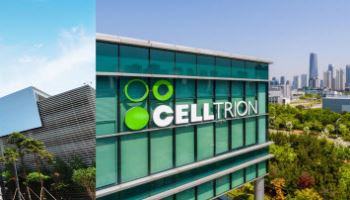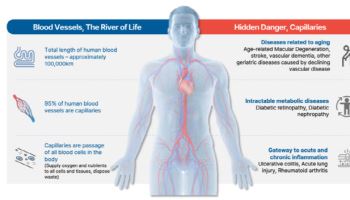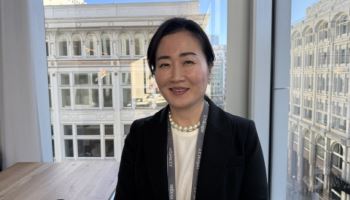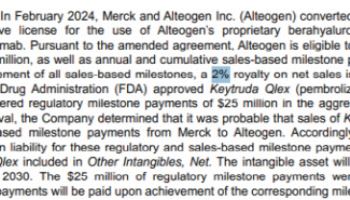Unauthorized reproduction or distribution is illegal and subject to criminal penalties.
Pharm Edaily enforces a zero-tolerance policy and will take strict action.
[NA Eun-kyung, Edaily Reporter] South Korean pharmaceutical and biotech stocks weakened sharply Wednesday after the Trump administration’s reciprocal tariffs took effect at 1:01 p.m. KST. Key healthcare indexes dropped more than 3% as fears over escalating U.S.-China trade tensions weighed on investor sentiment.
The downturn comes as maAny domestic companies have promoted U.S. market entry as a key growth driver. But with the world’s largest healthcare market now entangled in tariff battles, optimism has given way to uncertainty.
Only a few firms offering near-term tech licensing prospects, such as Olix and ABL Bio, managed to post gains amid a broad market pullback.
 | | Recent stock performance of OLIX (Source: KG Zeroin MP Doctor) |
|
Olix Soars on Expectations of a New Licensing Deal in H1 Olix rose 15.36%, the highest among healthcare stocks. An Olix official said the rally was fueled by investor expectations for a pending joint R&D deal in skin and hair regeneration, which the company had hinted at late last year.
In a Dec. 27 press release, Olix said it was finalizing a licensing deal for OLX702A, a potential treatment for metabolic dysfunction associated steatohepatitis (MASH) and obesity, and added that talks with a global company on skin and hair regeneration were progressing smoothly.
The compound in question is believed to be OLX104C, a siRNA-based topical therapy for male-pattern baldness. Unlike conventional oral medications that may cause sexual side effects, OLX104C is designed for local dermal delivery, potentially minimizing systemic issues. In preclinical testing, a single dose provided effects lasting more than three weeks. Phase 1b/2a clinical trials are currently underway in Australia.
SCD Pharm Tumbles on U.S. Tariff Concerns Over Taiwan-Based Manufacturing Shares of Samchundang Pharm plunged 12.34% to 146,400 won, the biggest drop among South Korean healthcare stocks. The sell-off followed concerns over U.S. tariff hikes on Taiwanese imports, where the company plans to manufacture its Eylea biosimilar, SCD411.
In December, SCD Pharm signed an exclusive supply and distribution agreement with Fresenius Kabi to sell the biosimilar in the United States and six Latin American countries. The company aims to submit its biologics license application to the FDA later this year, with a U.S. launch planned for late 2025.
SCD Pharm said the drug will be manufactured at a Taiwanese contract development and manufacturing organization (CDMO), Adimmune and Mycenax, under existing agreements.
However, the U.S. government recently classified Taiwan as a “worst offender” in trade policy, slapping it with a 32% tariff higher than the 25% expected for Korean exports.
Given that biosimilars rely heavily on price competitiveness, tariffs of this scale could severely impact marketability. Biosimilars are typically priced 20~30% lower than originators, and such high tariffs could erode the cost advantage, especially since biosimilars lack the long-term patient data and brand recognition of their originator counterparts.
Apt Neuro Science Gains on Political Connections The only other double-digit gainer in the sector was Apt Neuro Science, formerly Georim Energy, which surged 14.79%. However, the gain was likely driven by political speculation rather than business fundamentals.
The company was recently classified as a “Lee Jae-myung theme stock” after hiring Choi Woong-ki, a former broadcasting adviser under Lee during his tenure as Gyeonggi Province governor and Democratic Party presidential candidate. Choi is now serving as Apt’s executive vice president for media strategy.
The renewable energy firm, which previously generated around 20 billion won in annual revenue, is transforming into a biotech company under new ownership by Aprogen, which became its largest shareholder in January. Apt has launched a neurological disorders division, hired Dr. Jong Kyung Jung, head of Seoul National University’s genetic engineering research center, as its new president, and signed a joint development agreement with Aprogen for a Parkinson’s disease treatment.



![Alteogen Sees Temporary Dip in Investor Sentiment Market Turns Cautious[K-Bio Pulse]](https://image.edaily.co.kr/images/vision/files/NP/S/2026/01/PS26012300236b.jpg)



![알테오젠, 일시적 투심하락 관망세 전환…삼양바이오팜 가파른 상승[바이오맥짚기]](https://image.edaily.co.kr/images/vision/files/NP/S/2026/01/PS26012300239b.jpg)


